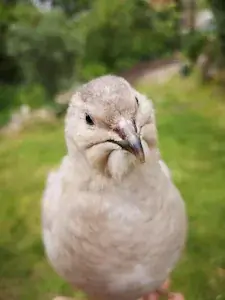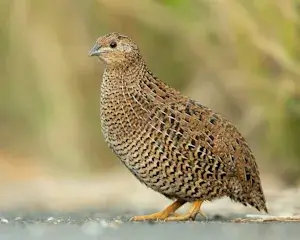Introduction: Why Keep Quails?
Quails are becoming increasingly popular among hobby breeders and self-sufficient enthusiasts. These small birds are easy to care for, require little space, and provide tasty eggs that are rich in nutrients. Whether in the garden, on the balcony, or in a small animal coop – quails are versatile and well-suited for beginners. In this article, you will learn how to keep, feed, and care for quails in an animal-friendly way.
1. Basics of Quail Keeping
Are Quails the Right Pets for Me?
Quails are ideal pets for people with limited space but who want to fulfill the dream of keeping small poultry. They are low-maintenance, quiet, and lay eggs regularly.
Legal Requirements and Space Needs
Before you start keeping quails, check the regulations in your area. There are often rules regarding the animal-friendly care and protection from predators.
- Space requirement: Each quail should have at least 0.25 m² in the coop and additional outdoor space.
- Group size: Quails are social animals and feel most comfortable in groups of five to ten.
2. The Perfect Quail Coop
Coop Requirements
A suitable coop protects quails from the weather and predators. It should offer the following:
- Size: At least 2 m² for eight quails.
- Flooring: Natural ground, sand, or wire flooring with bedding made of sawdust or straw.
- Hiding spots: Small shelters or plants, as quails like to retreat.
- Ventilation: Good air circulation without drafts.
Protection from Predators
Cats, foxes, and martens can pose a danger to quails. Use strong wire mesh (max. 1 cm mesh size) and secure doors and windows.
Indoor or Outdoor Keeping?
Quails can be kept both indoors and outdoors:
- Indoor keeping: Especially useful in winter, as quails are sensitive to cold.
- Outdoor keeping: Possible if the coop is insulated and has a sheltered area.
3. Quail Nutrition
What Do Quails Eat?
Quails have a varied diet. Their basic food consists of:
- Specialized feed: Quail feed with 20-25% protein content.
- Supplements: Fresh vegetables, fruits, herbs, and insects like mealworms.
- Calcium: Crushed eggshells or oyster shell grit for egg production.
Feeding Tips
- Feed small portions in the morning and evening.
- Ensure that feeders are clean and dry.
Water Requirements
Fresh water is essential. Use water dispensers that protect the water from contamination, and check them daily.

4. Quail Care and Health
Stall Hygiene
A clean coop is essential for the health of the quails. Clean the coop at least once a week and regularly replace the bedding.
Recognizing Diseases
Watch for symptoms such as lethargy, diarrhea, feather loss, or breathing problems. Common diseases include:
- Parasites: Mites or lice.
- Digestive issues: Caused by dirty water or improper feed.
Prevention and Treatment
- Regular coop hygiene.
- Quarantine new animals.
- If sick, consult a vet specializing in poultry.
5. Behavior and Occupation
The Social Life of Quails
Quails are social animals and should never be kept alone. A group of five to ten animals ensures harmony. Never keep multiple males together, as this can lead to fights.
Occupation Opportunities
Quails love variety. Provide them with:
- Sand baths: For feather care.
- Hiding spots: Small houses or plants.
- Foraging games: Scatter food for them to search for.
6. The Benefits of Keeping Quails
Fresh Eggs – Small but Delicious
Quails lay up to 300 eggs per year per bird. The small eggs are rich in nutrients, flavorful, and a delicacy.
Low Space Requirements
Quails need much less space compared to chickens. They are perfect for small gardens or balconies.
Easy Care
Quails are robust animals that require little effort as long as their basic needs are met.
7. Frequently Asked Questions About Quail Keeping
Are Quails Noisy?
Quails are quiet animals. While males produce a soft crowing sound, females are nearly silent.
Can Quails Stay Outdoors in Winter?
Quails are sensitive to cold. In winter, they should be kept in an insulated coop or indoors, as temperatures below 5°C can be problematic.
How Many Eggs Do Quails Lay?
Quails lay an average of 250 to 300 eggs per year, depending on the breed and living conditions.
Which Breeds Are Especially Suitable?
- Japanese Quail: High egg production.
- Chinese Dwarf Quail: Ideal for small spaces and ornamental keeping.
- Harlequin Quail: Attractive and versatile.
Conclusion: Keeping Quails – A Rewarding Experience
Keeping quails is a wonderful way to care for animals and enjoy their eggs. They require little space, are easy to care for, and enrich your daily life. With a safe coop, balanced diet, and regular care, quails will thrive in your care.den Tierfreund.

